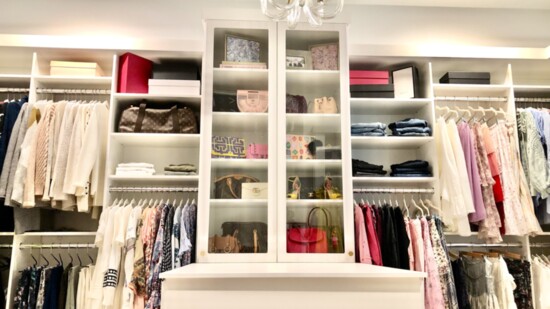Every time the calendar flips to January, local gyms get crowded and produce aisles get busy. If ever there were a time to get organized, it's now, right? But rather than organizing because the time is right, Laurie Martin of Simplicity Organizers suggests delving deeper into your motivations why: decluttering is good for the soul.
"We all want a simpler life," Martin says. "But we constantly feel overwhelmed, over scheduled and stressed."
Thinking intentionally about why you want to get organized is more important than worrying about how you'll do it, she says.
"If you don't look deeper into the why," she says. "It's just like shifting chairs on the Titanic."
Coming up with your "why" increases the likelihood that you'll actually follow through.
Paring down the clutter, cleaning out what you don't need, and creating an environment where you can actually find what you have is good for your well being in so many ways. Here are a four:
-
Physically. Having more space in your home impacts your body. Not only is it safer to maneuver— preventing falls, accidents and more—you have space to pull out a yoga mat or stream an exercise video. You don't have to be elderly or chasing a toddler to appreciate the benefits of safer surroundings. Think keeping clean counters around kitchen appliances or having a clear path from the bedroom to the bathroom.
-
Financially. When you're organized, you don't miss paying bills. You don't buy items you already own. You might save on some future Amazon purchases you realize you don't really need.
-
In relationships: A messy house and arguments over where things are adds undue strain between spouses, children, siblings and more. Day-to-day interactions can bring enough tension without having World War III over who last had the TV remote.
-
Spiritually: A clear mind is more peaceful and open to new ideas.
Once you realize the true value of getting your home and life organized, then it's time to make a plan. The first step is knowing how to set realistic goals. Start by identifying the difference between a to-do list and a project. A "to-do" is something short and simple — returning library books or making cupcakes for the class party. A project is multi-stepped and generally longer term — organizing photos, cleaning out the attic. Don't put projects on your to-do list or they'll never get done and you'll get discouraged.
Go in with a clear definition of clutter. Those of us who struggle with this the most might even want to write it down on a notecard and keep it handy when the keep-or-toss decisions get agonizing.
Simplicity Organizers defines clutter as anything:
a) you do not use or love;
b) that is untidy or disorganized;
c) that exceeds the space available;
d) that is broken or unfinished.
When you are ready to roll up your sleeves and get to work, follow these S-I-M-P-L-E steps:
Sort — Group like items together by color, season, shape, or function.
Identify — Use keep, donate, sell, and discard piles. Keep only what is cherished or frequently used.
Map — Make frequently-used items the most accessible. Leave space for new interests.
Put Away — A place for everything and everything in its place.
Label — Label each container, shelf, or drawer.
Enjoy — Celebrate easier access to belongings.
Above all, start small. Tackle a drawer, your purse, the trunk of your car. Build momentum from small victories.
For information about Simplicity Organizers, visit simplicity-organizers.com. Also find out more about Simplicity Serves, their program offering organizational services to families or organizations in need.
